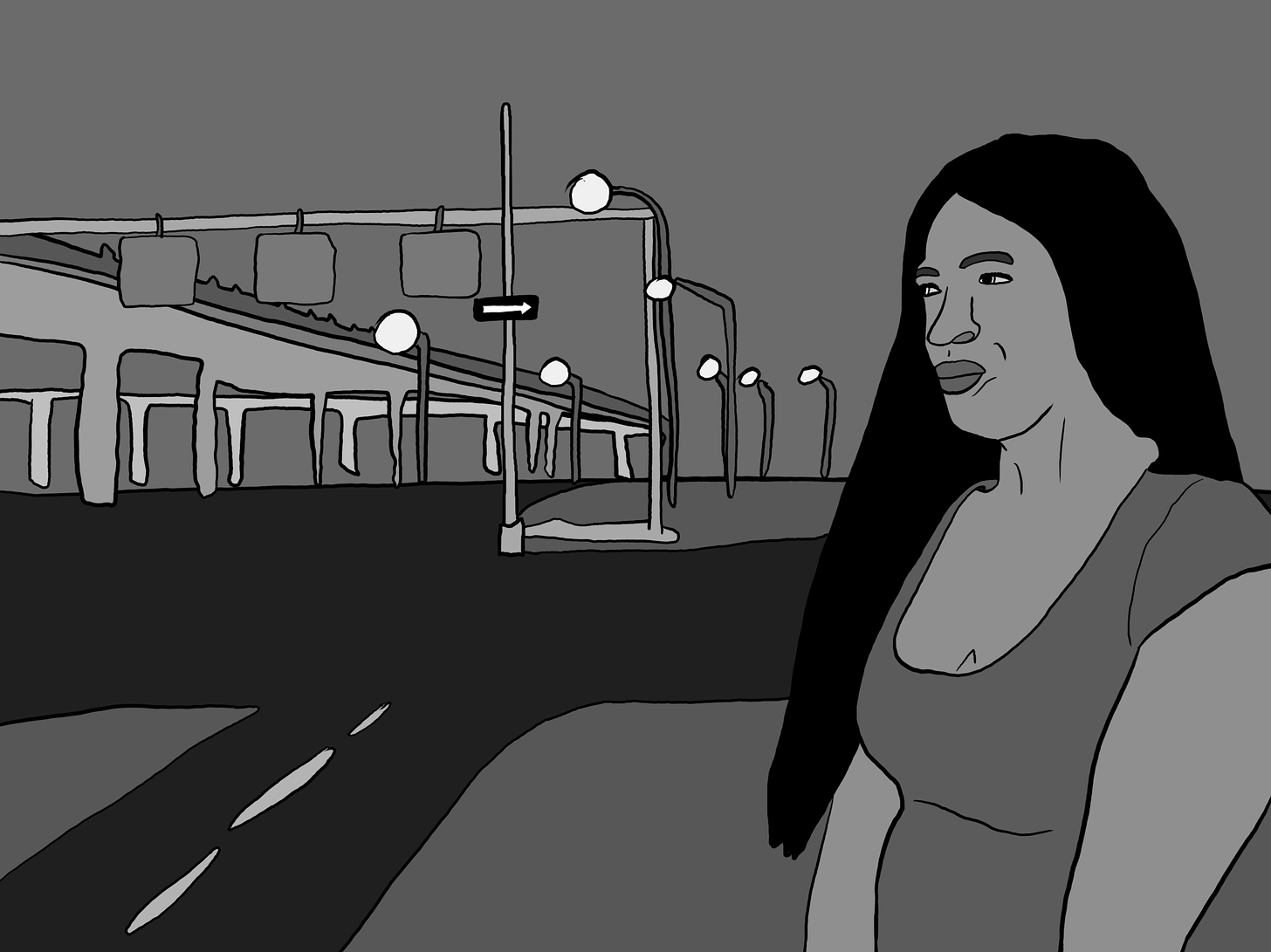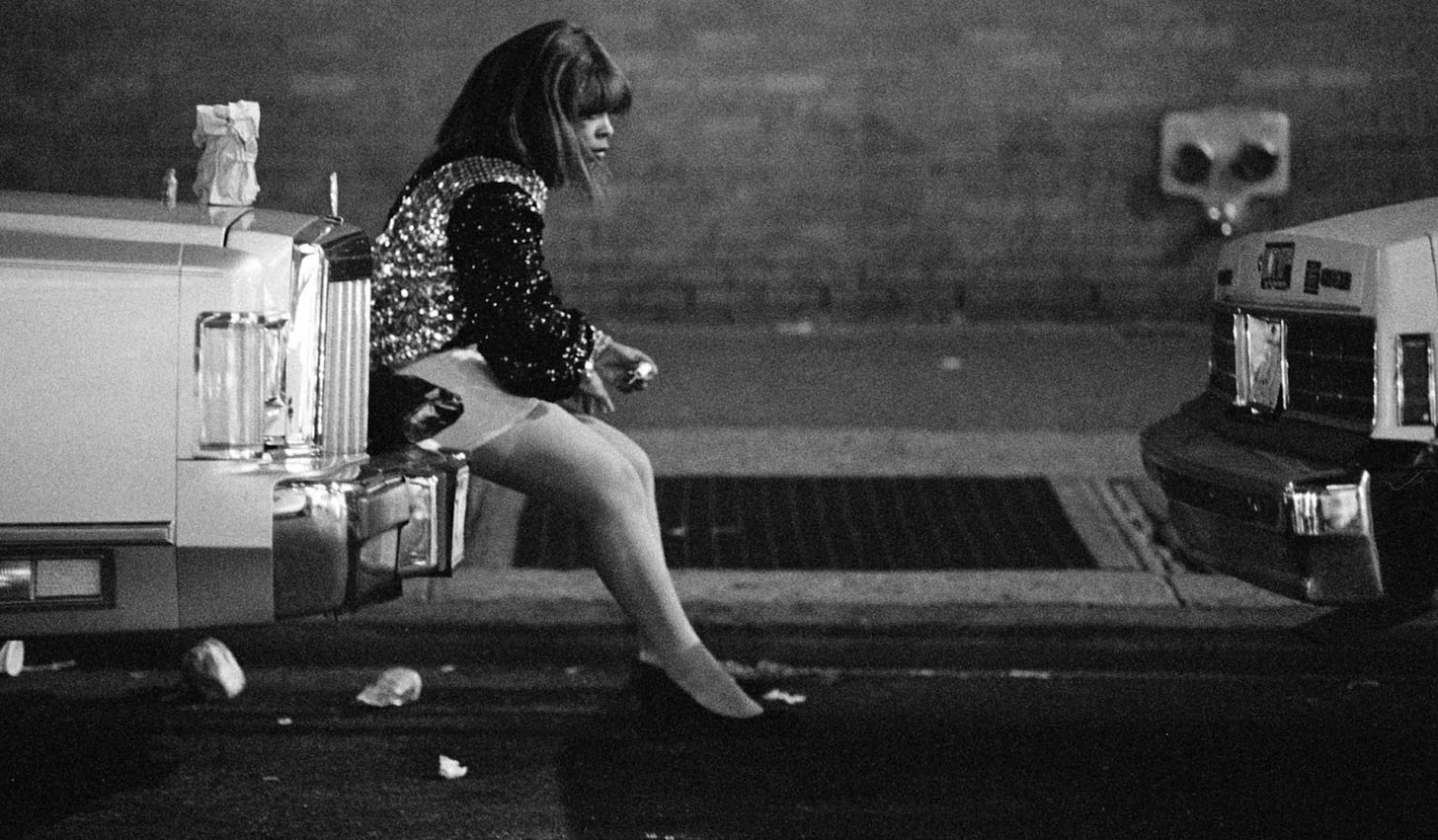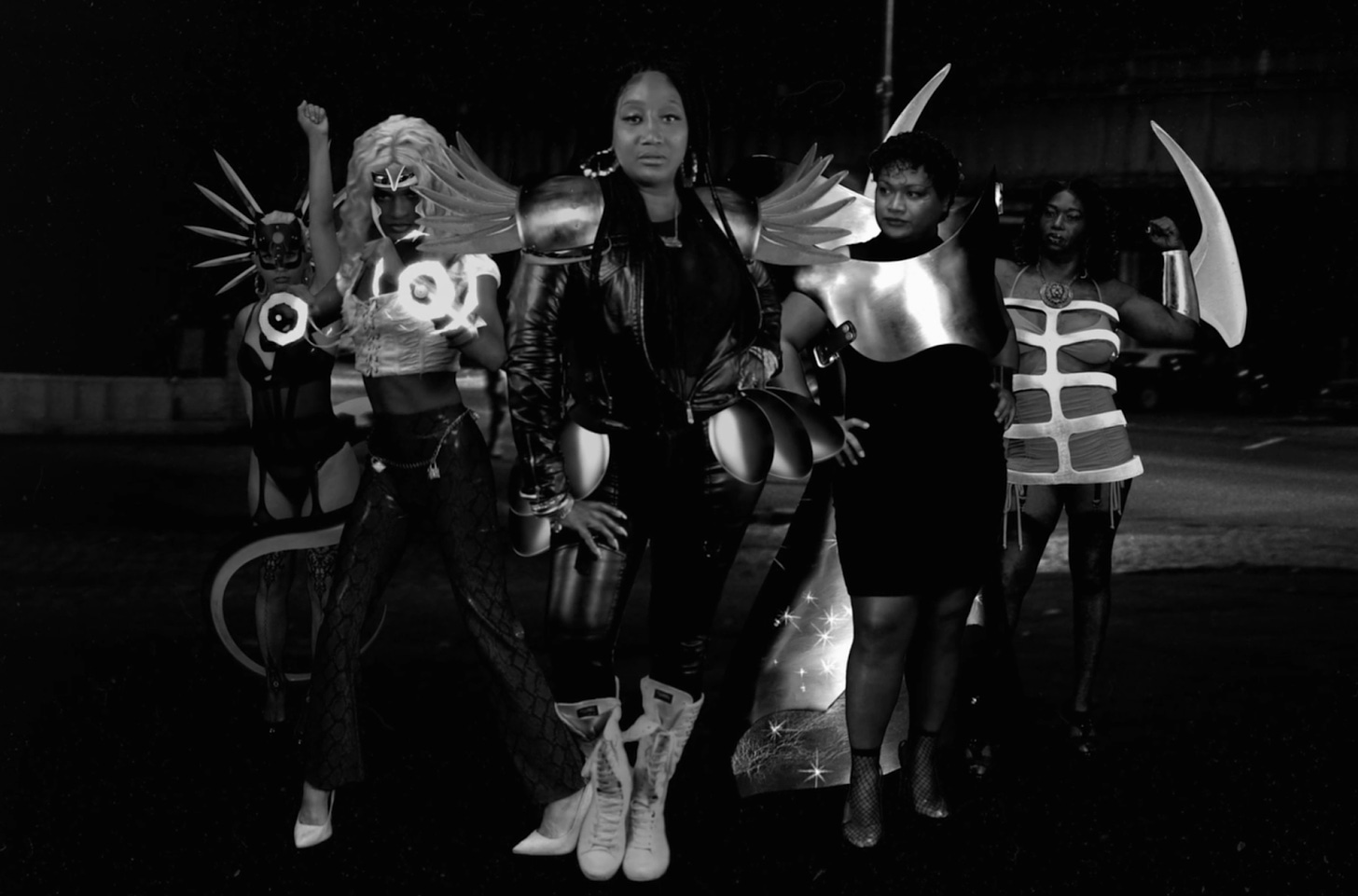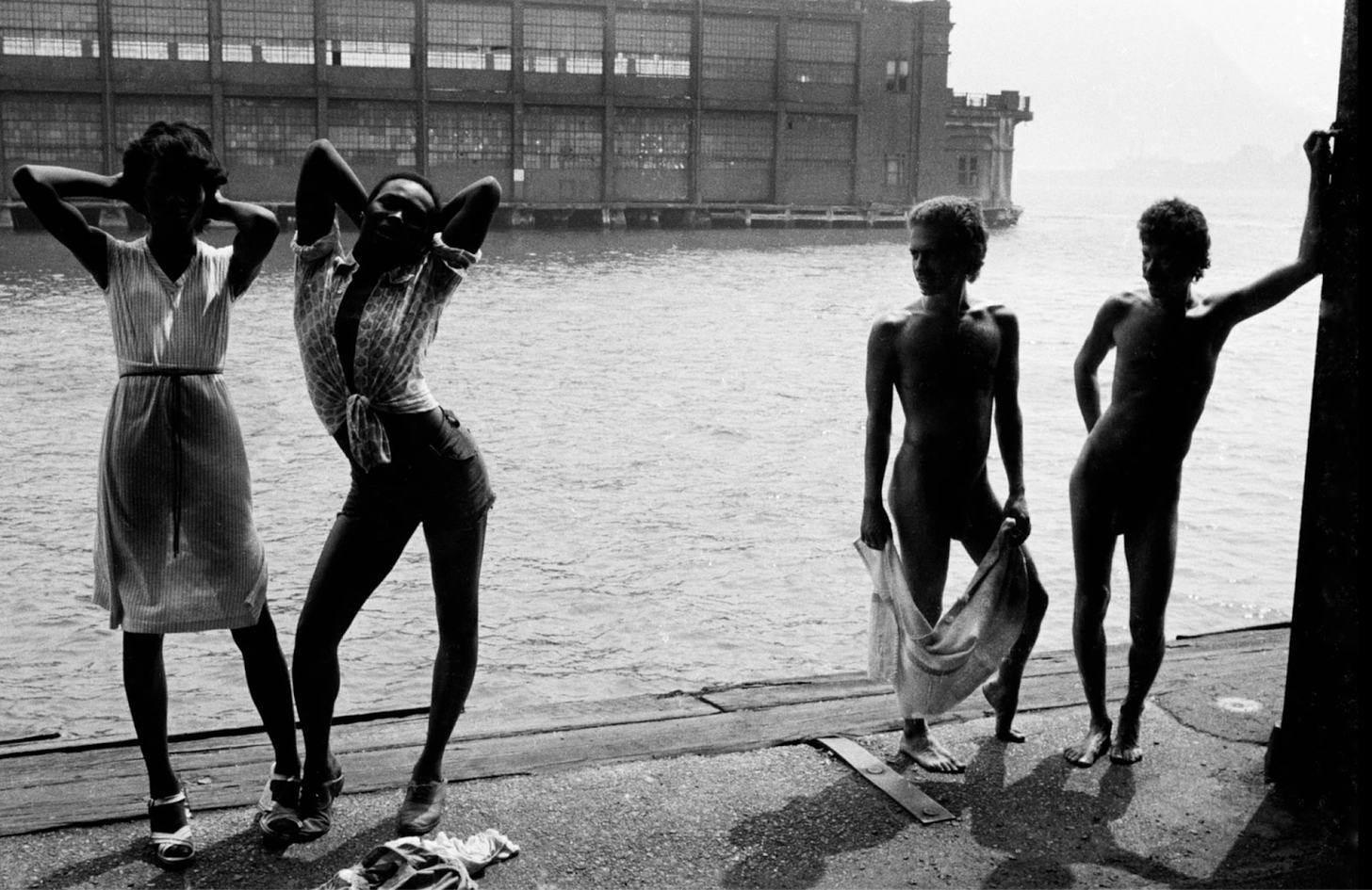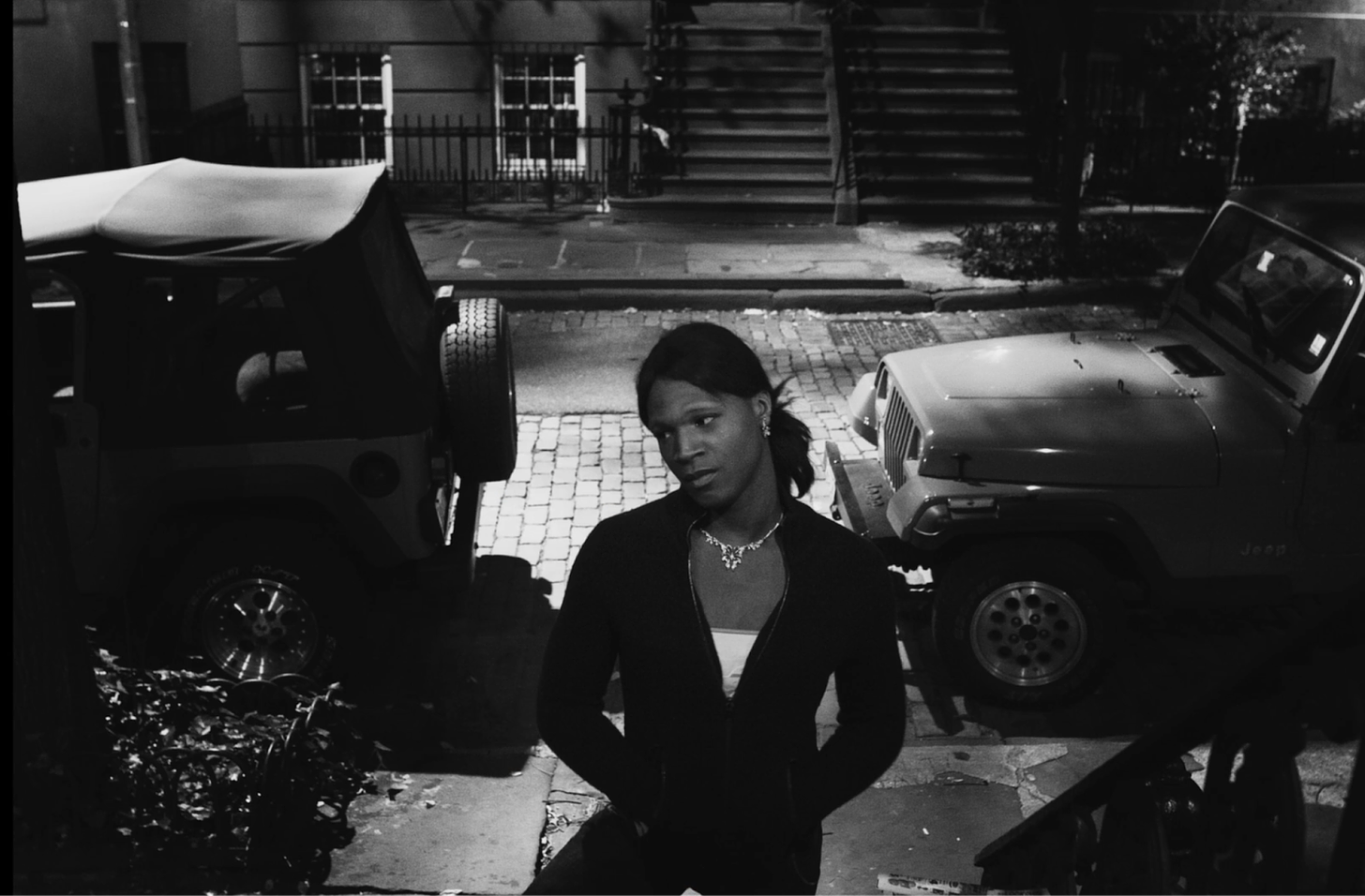Review: The Diva Will What? Succeed
‘The Stroll’ reunites the dolls to retell an essential New York City story
The Yearning Rating: ✰✰✰✰
Romance: ✰
Sex: ✰✰✰
Storytelling: ✰✰✰✰
Performance: ✰✰✰½
Yearning: ✰✰✰✰½
Thanks for being here! If you enjoy this writing, liking our post helps us grow on Substack :)
Written by Meg Heim
The 2023 documentary The Stroll was made so that Co-Director Kristen Lovell would finally have a chance to tell her own story, the right way. When Lovell moved to New York City in the ‘90s and started to transition, she was fired from her job. Facing the vehemently anti-trans public opinion of the time, Kristen began sex work—alongside an entire community of transgender women of color—in an area of the Meatpacking District known as “The Stroll”.
As a young adult working on The Stroll, Lovell was herself the subject of a documentary (Queer Streets; 2007). Archival footage of a young Kristen, leaning up against a building at night answering questions direct-to-camera, plays as the modern day filmmaker sits in an editing bay reviewing footage. She comments candidly on how she was likely using cocaine in the footage—and this sets the tone, as the documentary is grounded throughout by Lovell’s honest, vulnerable narration.
The historic lack of value placed on queer and trans lives and stories in this country is reflected in the quality of the history we keep. The mental image of trans sex workers, standing on a pier in a seedy, film-noir-esque NYC isn’t new to me. While examples such as Pose and Paris is Burning do challenge those stereotypes by showcasing healthy, happy, and caring queer communities, I feel that the rest of the media on this topic is one-note. It fixates on the lack of agency, the direness, the injustice; and it feels like the queer responsibility is to gravely take it in. The Stroll doesn’t negate the reality of commonplace violence against sex workers and trans people in the slightest; but rather, it provides a rich, colorful, and joyful contextualization that I feel is largely missing when we talk about the history of trans experience.
Lovell reunites many of her friends and colleagues from The Stroll and conducts beautiful, thoughtful and emotionally safe interviews with them that feel like conversations between family. It’s in these conversations that these trans women recount so many moments of joy, fun, resilience and excitement. I found myself getting caught up in their stories and “forgetting” the heavy feeling I am used to associating with this subject matter. Izzi "Cashmere" Starz, who now identifies as non-binary but spent many years living as a transgender woman alongside Lovell on The Stroll, laughs as they remind her of a shared client who regularly paid for only a mimed blowjob. “He was practicing social distancing—before it was a trend.”
The interviews, stories, and laughter are accompanied by a positive treasure trove of archival pictures and footage. In the most respectful way possible, these girls were putting the werk in sex work. Photo after photo of gorgeous trans women, posing confidently for the camera against imposing white refrigerated trucks, play across the screen. Lovell’s interviewees have a story about each girl—everyone is remembered, loved, and missed. When I talk about the joyful story that The Stroll is telling, this is what I’m talking about. Particularly in the 70s and 80s, the girls had fun. Of course, they recount confidently yet seriously the safety measures they had in place—mace, at a minimum, must be in every purse—but they also laugh while talking about rolling under trucks and talking on fake cell phones to hide from the cops. They talk about how the intimate relationships they built while working on the underbelly of 14th Street or camping out under the someday-High-Line gave them not just a chosen family, but an uplifting community. There is a gorgeous lack of fear in their voices as they talk about protecting themselves; instead, a definitive exclamation of their own Wonder Womanhood. “If I ever got in trouble with a guy, every girl that was on The Stroll was there.” One of the most beautiful parts of this documentary is how fiercely these women believe in the value of their own livelihood.
I feel like documentaries can be tricky work—they require a highly skilled editor to collage together many different kinds of materials in a way that is still engaging and creative. The Stroll doesn't just utilize pictures, archival footage, and present day footage—it also creates a series of highly effective, roughed-in animations called animatics. These are made by utilizing a photo or handful of photos and “puppeting” the subject, i.e. adding movable joints to a person in a photo and animating a simplified version of movement. (It’s sort of like an animated storyboard.) This gave life to some of the harder-to-imagine moments that were likely never captured on camera.
Nearly every person Lovell interviews has a story about being arrested. Some tell stories about being arrested up to 30 or more times. The way the police are spoken about in The Stroll is very interesting. When recalling the 70s and 80s, the interviewees talk about viewing the police almost as a sort of manageable, yet annoying opponent. They explain learning the “Lock Up Days” schedule and beating the police at their own game by entirely vacating their go-to spots until the cops had completed their usual sweeps. Police were frequently their clients—and more than one sex worker describes being arrested by a police officer immediately following the completion of their contracted work. Dealing with the police was irksome, not fun, but it was part of the job. It certainly didn't outweigh the benefits—plenty of Johns who were generous with cash and gifts and, for the most part, perfectly safe. Part of what this documentary does best is teach a decade-by-decade history lesson. The incremental shifts that took place in the lives of those on The Stroll are carefully tied to each political evolution of New York City.
When Rudy Giuliani succeeded in his second mayoral campaign in 1993, it was on the back of his “tough on crime” platform. The Stroll deftly explains broken windows theory—simply put, that disorder is a gateway to, if not just as dangerous as, more violent crime—and illustrates with scary archival footage how Giuliani transformed New York City into a proper police state. Now the girls were at risk every night—and the over-broad “Walking While Trans” law was used as justification to stop and frisk trans people at any time of day. Amidst many other stories, one woman shared that more than once, she was stopped while simply on the way to the store for bread.
Many of Lovell’s interviewees also talk about how Giuliani’s policies affected not just their work, but their homes. Archival footage of monumental trans activist Sylvia Rivera tours a camera crew through her intricate homeless encampment alongside the Hudson River. When safety and community care is a priority, finding that under a tent matters a little less. While not trivializing houselessness, The Stroll emphasizes the difference between that and homelessness. The girls had their village—and that's what was important. They could take care of each other. But the sweeping forces of gentrification and a supercharged NYPD shutting down encampments initiated what became the total criminalization of trans life.
And yet, sometimes the prejudice Lovell and her sisters faced came from inside the community. Unsettling footage of RuPaul’s 1991 show Manhattan Cable is featured in The Stroll. It shows the famous drag queen interviewing the “transvestite hookers” of the Meatpacking District in a sensationalized, exhibitionist style. More than once, he crudely jokes about joining the girls and “making a career change”. Yes, it was a different time, but the complicated reality of RuPaul in this old footage is that it displays a side of him that isn’t surprising. Given his reluctant embrace of trans people in his modern media megaverse of Drag Race, I wasn’t surprised to see that this is where he was starting from. Lovell comments in the film that Ru “should’ve known better”.
Did you know that 9/11 had an impact on the landscape of sex work in New York City? Because I didn’t. The Stroll reminds us what we’ve all heard before—that the city was completely different after 9/11. There was a complete and total shift in New York culture. While it seems obvious that this would have affected the economy and the traditional veins of commerce, it extended into sex work as well. Lovell’s interviewees recount how people didn’t even want to be outside—and so, there were far fewer clients. There was so little work available that Black trans sex workers began spending their days in internet cafes, advertising their sex work on Craigslist and in early 2000s chat rooms. They were a secret queer undercurrent, feeding into a now-large, profitable, and normalized body of digital sex work. One interviewee explains how beneficial this was: it was safer and more profitable to simultaneously reach a bigger audience, but also have the option to vet potential clients via digital distance. This ingenuity is transness inherent!!
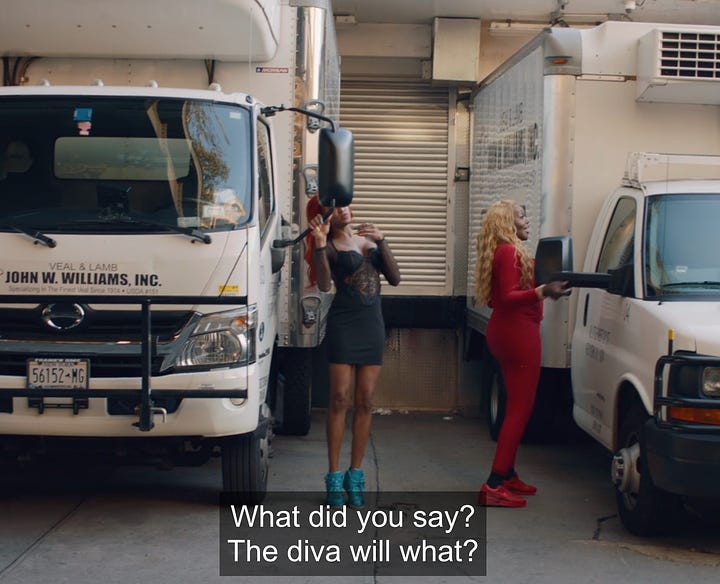
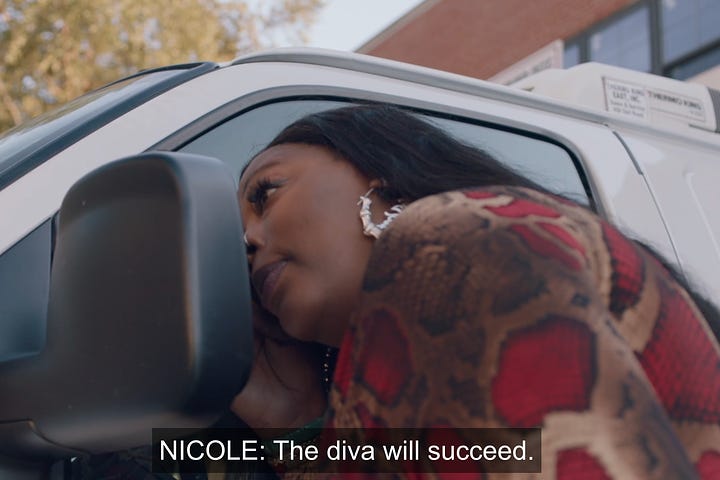
The Stroll is under 90 minutes and packed full of digestible, new information on the lives of those who worked the piers of NYC and persevered through predatory legislation, violence, discrimination and houselessness in the ‘90s and early 2000s. It honors all of these challenges while still telling a story of trans joy. There are several lovely clips of Lovell and her former colleagues walking through the areas of the city that they used to work in—and for the most part, they laugh and reminisce, building each other up with compliments and kindness. In the face of extreme adversity, they still served. They remind each other that the fight for trans justice and lives is nowhere near over, but they look back with pride at their activism and bravery. They know just how beautiful they are. Lovell successfully revives the flat, familiar and depressing narrative about the history of trans sex work, weaving in just the right amount of sparkle. Black trans lives don’t just matter—in The Stroll, they shine brilliantly.





